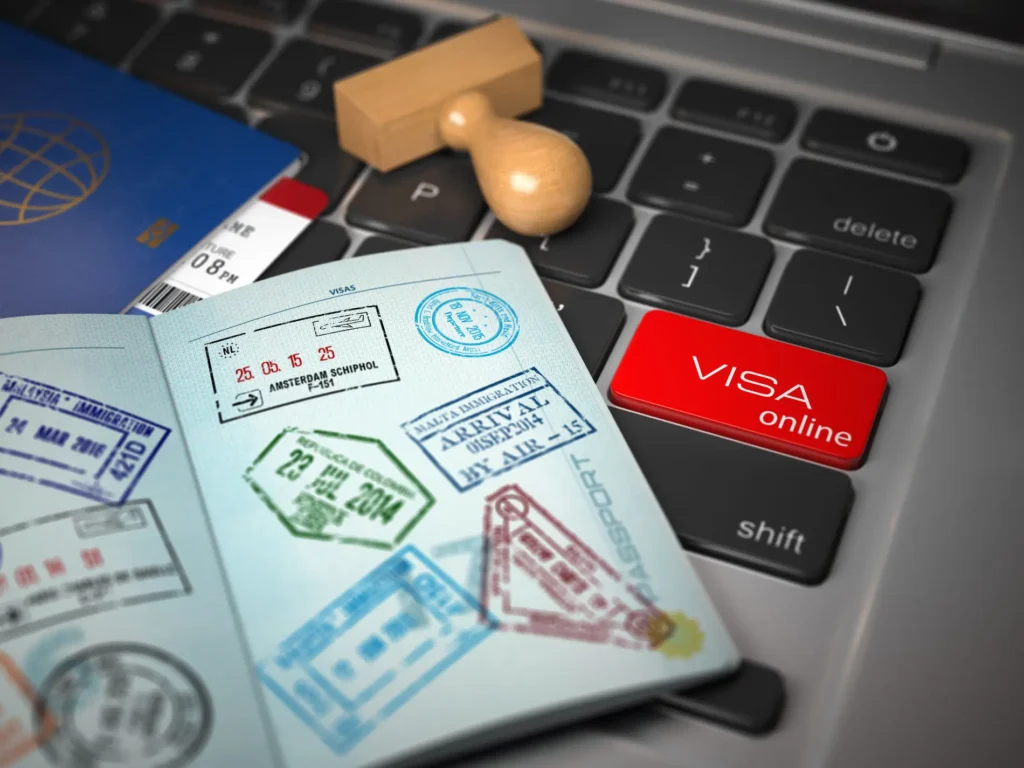The Philippines, a rapidly developing country, is attracting more and more foreigners for tourism, business, or immigration. However, if you’re planning to live, work, or invest in the Philippines, it’s essential to understand the Philippines legal procedures. This article will guide you through the key steps you need to follow to ensure a smooth experience during your stay or business ventures.
1. Visa and Immigration

Types of Available Visas
- Tourist Visa: For short-term stays, usually up to 30 days, many nationalities do not need a visa to enter the Philippines. You can extend your stay for up to 36 months by applying for extensions at the Bureau of Immigration.
- Work Visa: If you plan to work in the Philippines, you’ll need a 9G (Pre-Arranged Employment Visa). You’ll require a local employer to sponsor your visa application.
- Retirement Visa: The Special Resident Retiree’s Visa (SRRV) is designed for foreign retirees, allowing long-term residency. This visa typically requires a bank deposit, which varies depending on your age and conditions.
Immigration Process
Obtaining a visa can involve multiple steps, such as submitting documents, background checks, and possibly an interview. Make sure to comply with visa requirements to avoid penalties or deportation.
2. Registration and Residency Permits
Alien Certificate of Registration (ACR) I-Card
Foreigners staying more than 59 days in the Philippines must obtain an ACR I-Card. This is a mandatory ID for all foreign nationals, containing essential information like fingerprints, a photo, and visa details. The ACR I-Card must be renewed annually.
3. Starting a Business

Business Structures
- Sole Proprietorship: Ideal for small individual businesses, with a simple setup process. However, the owner holds unlimited liability.
- Partnership: Two or more people can form a partnership, either general or limited, based on the responsibilities shared by the partners.
- Corporation: Suitable for larger businesses, requiring at least five shareholders. Responsibilities are limited to investments, and stricter capital requirements apply.
Business Registration Steps
To start a business in the Philippines, you’ll need to:
- Register your business with the Department of Trade and Industry (DTI) for sole proprietorships, or the Securities and Exchange Commission (SEC) for corporations.
- Obtain a Business Permit from the local municipality.
- Register with the Bureau of Internal Revenue (BIR) for tax purposes.
4. Property Acquisition

Foreigners face restrictions on owning land in the Philippines. However, you can:
- Purchase condominium units, provided that 60% of the building is owned by Filipinos.
- Lease land for up to 50 years, with a one-time renewal option for 25 more years.
5. Tax Obligations
Income Tax
Foreign residents (those staying more than 180 days per year) are taxed on their worldwide income, while non-residents are taxed only on income earned within the Philippines.
Value-Added Tax (VAT)
Businesses with an annual gross revenue of over PHP 3 million must register for VAT and pay 12% on sales of goods and services.
6. Social Security and Healthcare
Foreign workers in the Philippines are required to contribute to three main social security bodies:
- SSS (Social Security System): For retirement, sickness, and disability benefits.
- PhilHealth: For basic healthcare coverage.
- Pag-IBIG Fund: A housing savings fund.
Contributions are usually shared between the employee and employer.
Conclusion
The Philippines offers many opportunities for foreigners, whether for living, working, or investing. However, understanding the Philippines legal procedures is crucial to avoid complications and ensure that your stay or business is smooth and successful. Familiarizing yourself with visas, taxes, property laws, and social security systems will help you navigate life in this vibrant country more confidently.

0 comments